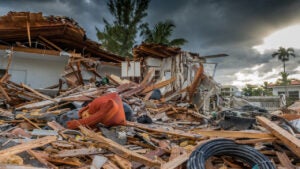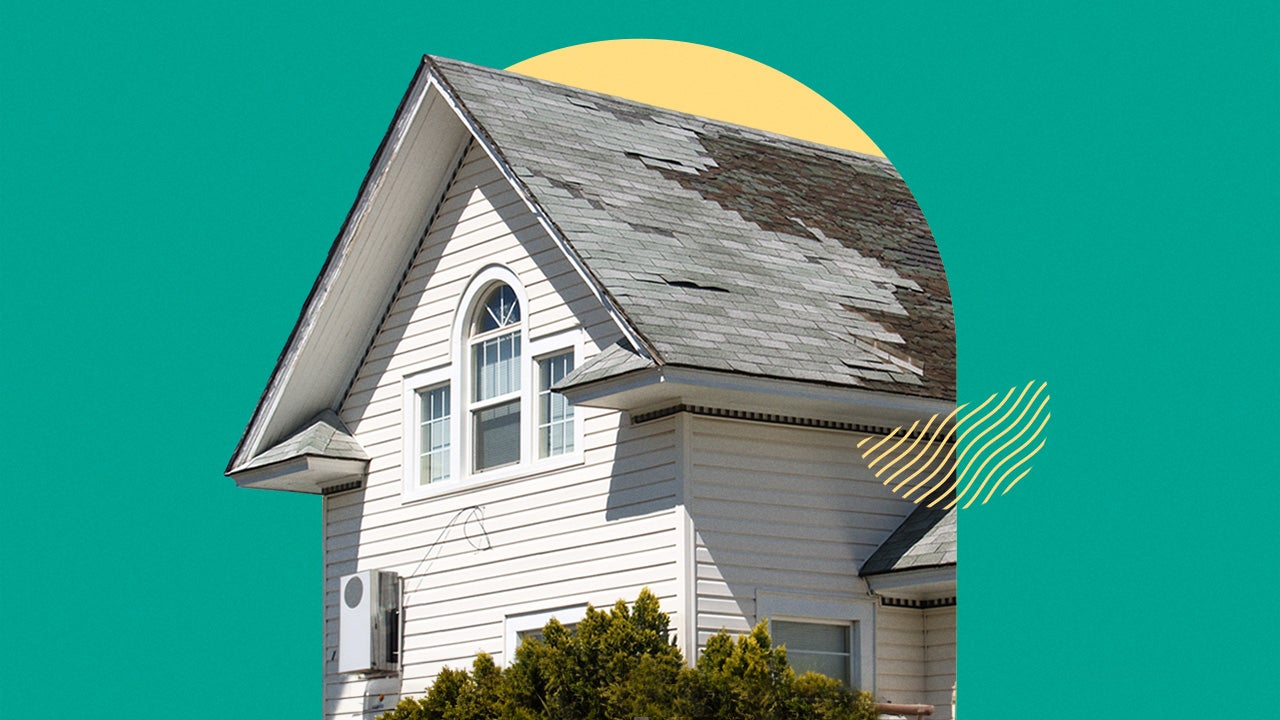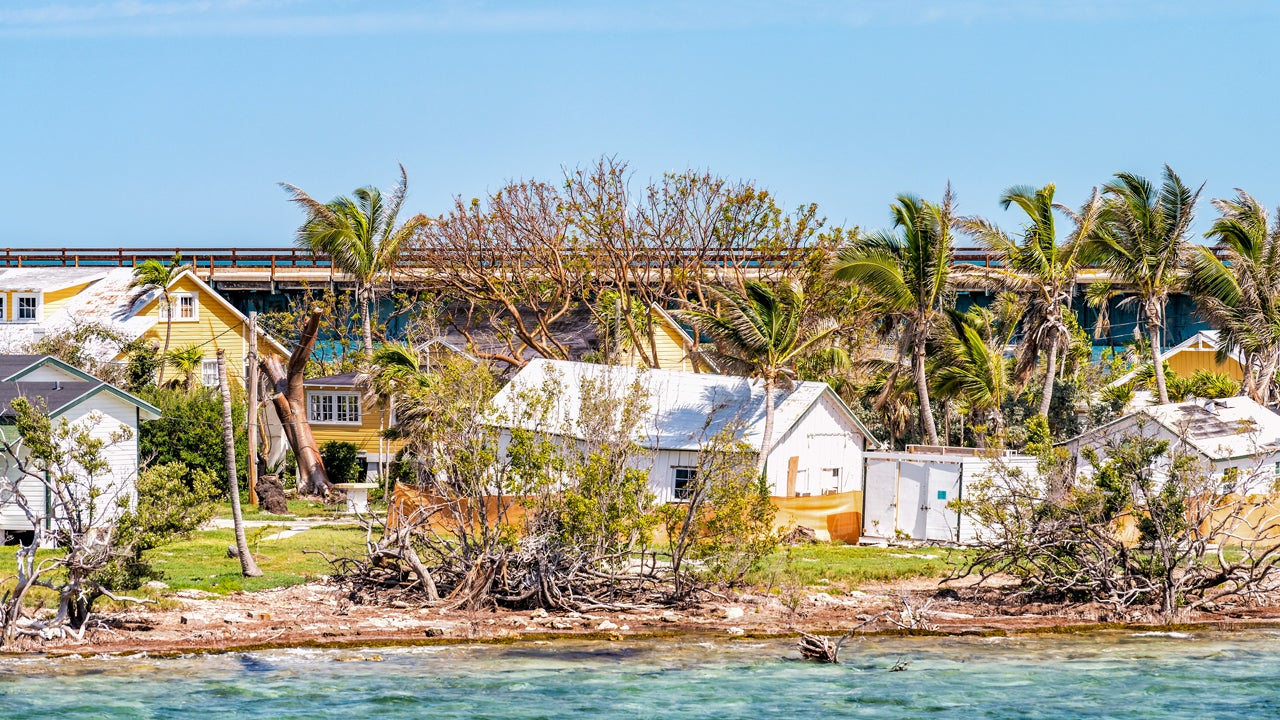Hurricane season is here. Will your insurance policies weather the storm?

Extremely active and record-breaking are how forecasters are describing the 2024 Atlantic hurricane season. All signs indicate that this year may be a tough season for Americans living on the East Coast and around the Gulf of Mexico. While you can’t stop a hurricane from landing on your doorstep, you can make sure your home and auto insurance policies are active and account for hurricane risks in your area.
Are my home and car at risk for hurricane damage?
When we think of hurricane damage, most people think of Florida, Louisiana and Texas. While these Gulf Coast states do statically see more frequent and severe storm landfall than other states, residents on the East Coast as high as Boston may find their county’s hurricane risk classified as relatively high on the Federal Emergency Management Agency (FEMA) Hurricane Risk Index score. Depending on a hurricane’s magnitude, damage can occur several hundred miles inland from where it makes landfall.
To understand your level of hurricane risk, you should be aware of what hazards tropical cyclones produce. According to the National Oceanic and Atmospheric Administration (NOAA), tropical cyclones — the umbrella term for tropical depressions, tropical storms and, when winds are strong enough, hurricanes — create the following weather events:
- Storm surges
- Heavy rainfall
- Flooding
- Strong winds
- Tornadoes
- Landslides
With these weather conditions in mind, here are some factors to consider when assessing your family’s hurricane exposure:
- Is your home at or below sea level?
- Can you park your car in an enclosed area?
- How far inland is your home from a body of water?
- Is your home built on an old tributary system?
- How old is your roof?
- Does your home have any mitigation measures in place, such as roof clips or an elevated foundation?
Extreme weather patterns are changing, and more areas are at risk for damage from hurricanes and severe storms that haven’t been in the past. Finding resources on how climate change is shaping your state may help you make more informed financial decisions about your home and auto insurance needs. Websites like ClimateCheck allow you to see how climate change may affect your property within the next 30 years.
When is hurricane season?
The Atlantic hurricane season runs from June 1st through November 30th. This year’s hurricane forecast was deemed as “extraordinary” by NOAA after it released its highest ever pre-season prediction. NOAA predicts an 85 percent chance of having an above-average hurricane season that will produce 17-25 named storms and between 8-13 hurricanes.
Does home insurance cover hurricanes?
Most home insurance policies cover certain types of hurricane damage, but not all. Your insurance carrier, policy type and state influences the kind of perils you’re insured from, so speaking with your agent about what you are and aren’t covered for is the best course of action. That said, here is how standard home insurance covers hurricane damage:
Falling objects
Whether it’s a tree or a meteorite, most insurance companies cover falling objects that damage your dwelling, other structures or personal property. However, if an object damages your home during a hurricane, it is likely to be considered wind damage instead of damage from a falling object. If your policy has a separate hurricane deductible, your insurance provider will use that over your flat homeowners deductible.
Flooding
Flooding is not a covered peril under a stand home insurance policy. If you are located in an area prone to flooding you may want to consider contacting a private flood provider or the National Flood Insurance Program (NFIP) to purchase a flood policy.
Lighting strike/fire
Lighting strikes are common during hurricanes and are typically covered by insurance. If a lighting strike is the proximate cause of a fire that results in damage to the home, the resulting damage is usually coverage as well.
Theft and vandalism
When a state issues evacuation orders, it puts thieves and vandals on alert that a large number of homes will be vacant and that police will be occupied with evacuation procedures. Vandalism can also occur on dwellings with doors and windows blown in by hurricane force winds. In most cases, theft and vandalism is covered by standard home insurance.
Tornadoes/Wind
Winds from hurricanes and tornadoes spawned from hurricanes may be covered on your home insurance or could be excluded if you live in a high-risk wind area. There are 19 states, plus Washington, D.C., that have windstorm insurance options as a standalone policy or with percentage-based deductibles. If your insurance provider doesn’t cover windstorms, your state may have a Fair Access to Insurance Requirements (FAIR) insurance plan you can purchase for your home.
Does car insurance cover hurricanes?
Your car insurance can cover damage from a hurricane if you have purchased certain coverage types. Drivers with comprehensive coverage have financial protection from losses related to weather, such as lighting strikes, floods, wind damage and more. This coverage will pay a claim up to your vehicle’s actual cash value (ACV) minus the deductible. Along with comprehensive coverage, there are a few additional coverage types you may want to consider:
GAP coverage
When your car gets totaled in a covered claim, guaranteed asset protection (GAP) can cover the difference between your ACV claim payout and the balance of your car loan. Since auto loan rates have been high for the past few years, many drivers may be upside down on their car loans. This coverage can help you avoid paying off a loan on a car you can no longer drive.
Rental reimbursement coverage
When your car is in the shop being repaired from a covered claim, you may still need access to a vehicle. Rental reimbursement is an optional coverage that can reimburse you for rental vehicle expenses up to the limit selected on your policy.
How much does hurricane insurance cost?
The price of hurricane insurance varies greatly based on your carrier, home characteristics and location. On average, the total cost of hurricane coverage is $5,341. This figure includes the annual national average rate for full coverage car insurance, homeowners insurance with $300K in dwelling coverage and flood insurance through the NFIP.
For comparison, below is the average cost of hurricane insurance for the 3 states bordering the Gulf Coast. Please note these totals do not include additional costs for standalone wind policies or private flood insurance.
Do I need more hurricane insurance?
Working with an experienced insurance agent can help you determine a level of hurricane insurance that aligns with your risk of loss. The main hurricane coverage needed for your car is comprehensive insurance. Many car insurance companies sell comprehensive and collision coverage together as a full coverage package, but you should be able to purchase them separately. You can obtain quotes to add comprehensive coverage to your policy online and try various deductible options to find the best rate.
Regarding home insurance, hurricane coverage is more complex and generally more expensive. It is always a good idea to review your home insurance policy to make sure the information is current and active. If you pay for your home insurance through escrow, it can be easy to forget to make policy updates.
When reviewing your policy, look for the following information to help you navigate a coverage conversation with your insurance agent:
- Is wind damage covered? If not, you may need a quote for a separate wind policy
- What kind of wind deductible do you have? Is it percentage-based or a flat deductible? What triggers the deductible?
- Is there a risk of flooding in your area? Flood damage may be a concern even if you live in an area with relatively low hurricane risk.
Frequently asked questions
-
Hurricane insurance isn’t necessarily cheap, but there are steps you can take to bring the cost down. Comprehensive coverage for car insurance is already relatively affordable; however, anti-theft discounts can help bring the cost down slightly. To save money on home insurance, consider upgrading your home with some hurricane mitigation features. Roof clips, hurricane shutters and elevating your foundation may be costly improvements, but check with your local municipality or FEMA for assistance programs.
-
Hurricane season can take a mental, emotional and financial toll on entire communities. While acquiring different types of insurance policies can be expensive, most insurance experts agree that even high coverage costs are worthwhile compared to the potentially devastating impact of replacing your vehicle or rebuilding your home out of pocket. Depending on where you live, it can be challenging to find coverage, regardless of the price. Working with an experienced local agent can be a good way to find the coverage you need at a price you can afford.
Methodology
Bankrate utilizes Quadrant Information Services to analyze June 2024 rates for all ZIP codes and carriers in all 50 states and Washington, D.C. Rates are weighted based on the population density in each geographic region.
Auto
Quoted rates are based on a single, 40-year-old male and female driver with a clean driving record, good credit and the following full coverage limits:
- $100,000 bodily injury liability per person
- $300,000 bodily injury liability per accident
- $50,000 property damage liability per accident
- $100,000 uninsured motorist bodily injury per person
- $300,000 uninsured motorist bodily injury per accident
- $500 collision deductible
- $500 comprehensive deductible
To determine minimum coverage limits, Bankrate used minimum coverage that meets each state’s requirements. Our base profile drivers own a 2022 Toyota Camry, commute five days a week and drive 12,000 miles annually.
These are sample rates and should only be used for comparative purposes.
Homeowners
Quoted rates are based on married male and female homeowners with a clean claim history, good credit and the following coverage limits:
- Coverage A, Dwelling: $300,000
- Coverage B, Other Structures: $30,000
- Coverage C, Personal Property: $150,000
- Coverage D, Loss of Use: $60,000
- Coverage E, Liability: $500,000
- Coverage F, Medical Payments: $1,000
The homeowners also have a $1,000 deductible, a $500 hail deductible and a 2 percent hurricane deductible (or the next closest deductible amounts that are available) where separate deductibles apply.
These are sample rates and should be used for comparative purposes only. Your quotes will differ.
Why we ask for feedback Your feedback helps us improve our content and services. It takes less than a minute to complete.
Your responses are anonymous and will only be used for improving our website.
You may also like

Does homeowners insurance cover basement flooding?

How to prepare your home for hurricane season

What does homeowners insurance cover?

Does homeowners insurance cover hurricane damage?


